50+ Questions to Ask When Choosing Your New Doctor
When you have more options in a health professional, it helps to ask yourself questions that are important for your health experience and will build your trust in the provider. To help you, we made a list of over 50 questions to ask new doctors when choosing one.

In 1966, more than 75% of Americans reported high levels of confidence in medical workers. But now, the US ranks low in public trust of physicians. By 2012, only 34% had that same confidence.
This creates a major problem with people receiving healthcare. If they don’t trust doctors, they’re less likely to visit one even if they need it or adhere to their care.
A driving factor for patients trusting their medical professionals is having a choice in who they visit. Those who feel they have enough choice of physicians are more likely to trust them and the health organization. It’s more important to patients to have enough choice of physicians than it is to have many health plan options.
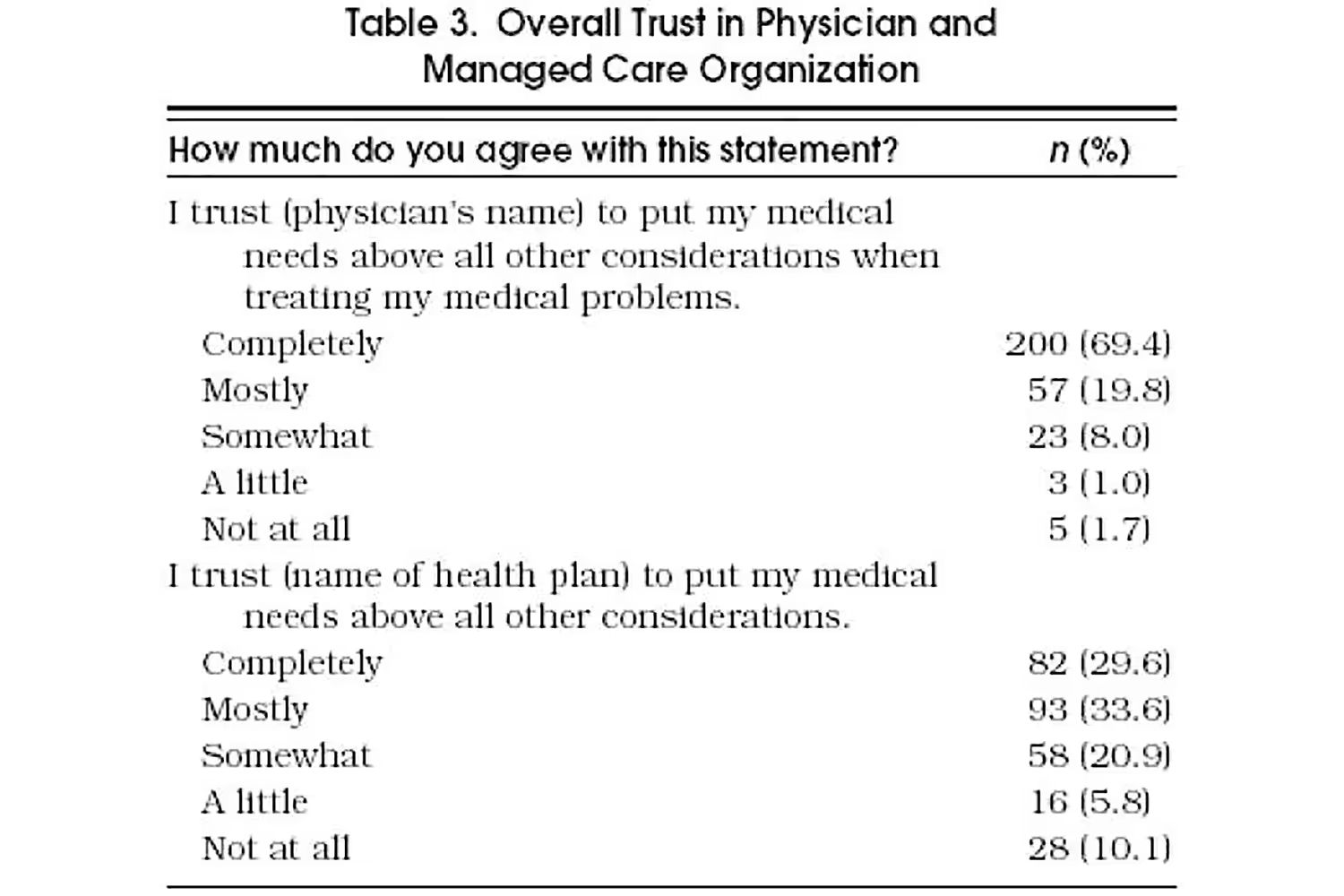
When you have more options in a health professional, there are things to consider when deciding. It helps to ask yourself questions that are important for your health experience and will build your trust in the provider.
There are things to consider before deciding who to visit and also once you choose the practice. To help you, we made a list of over 50 questions to ask new doctors when choosing one.
About The Doctor
- Are you board-certified?
- What is your previous experience?
- How long have you been a primary care physician?
- Where did you go to medical school?
- How long have you been a physician?
- What is your experience with ___?
Getting to know the doctor is the first step to choosing the right one. This is going to be the person you visit with any health concerns, so making sure they have the qualifications you need and are looking for is necessary.
You know your health better than anyone else, so there may be certain things you need from a doctor. Depending on your medical history, it may benefit you to have a physician with experience in that area.
It’s helpful to weigh which of these questions is important for you to get answers to. Does it matter how much experience they have? Following their education and training, years of experience is a top-rated factor for patients. If this is true for you, then consider that when searching.
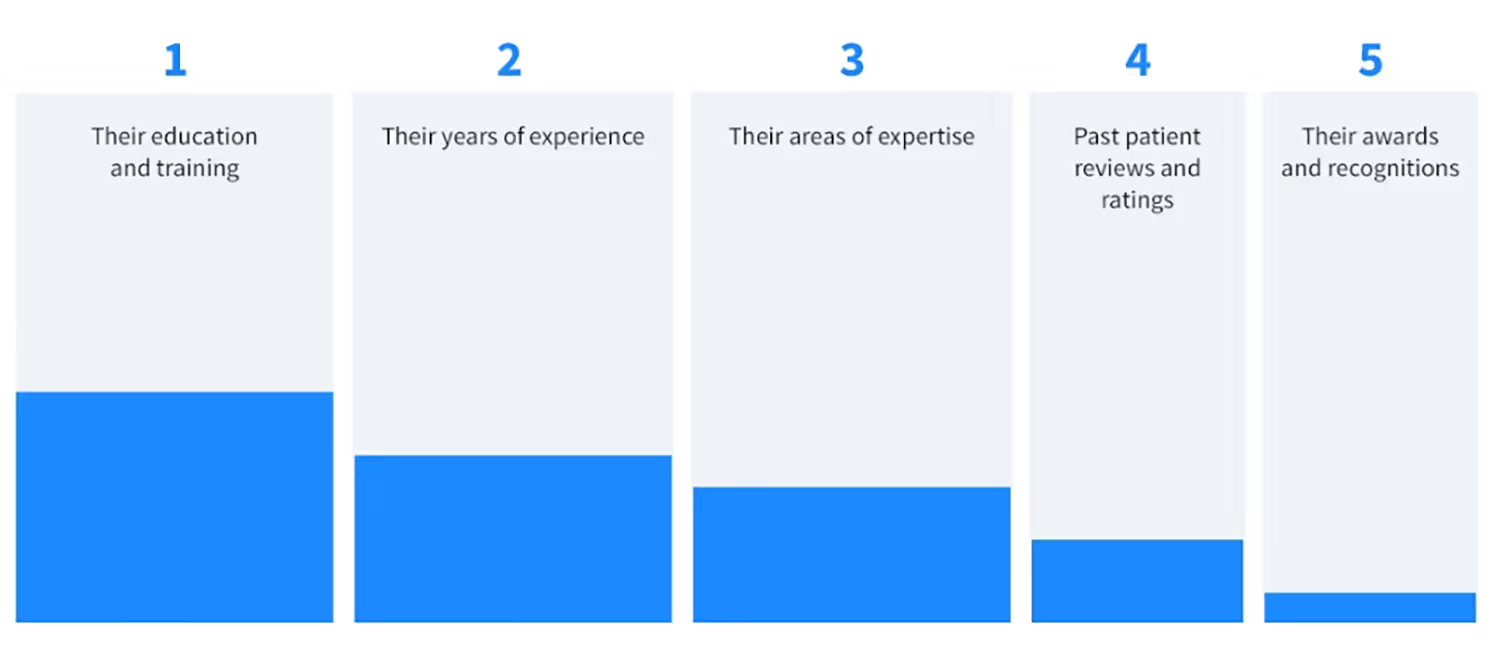
Once you have an idea of their experience and if there are no deal-breakers so far, you can use the next questions to ask new doctors about their practice.
General Facility Questions
- Are you accepting new patients?
- Is this a group or individual practice?
- Is there someone in the facility who speaks my language?
- What are your hours?
- Is the facility accessible for wheelchairs/walkers?
- Do you keep paper or electronic medical records?
- Who takes care of patients when you’re away?
- How many patients do you see in one day?
- Are you comfortable with me bringing a family member/friend?
Getting a general understanding of what the practice is like will help you narrow your options.
First of all, is this office even taking new patients? If not, then you can move on from that choice.
Besides that, there may be specific criteria that fit your needs. These could depend on your schedule or even physical and emotional needs.
Depending on your schedule, office hours will be a significant factor. If you can only do visits after 3 PM but that’s when the office closes, there’s no reason to become a patient there.
Another priority might be finding a doctor that allows you to bring someone else into the visit. This is especially true for people who care for young children or older patients with caregivers. Other people may need an emotional support person.
Accessibility aids like ramps, elevators, and automatic doors are also necessary for some people. Without these options, it makes an appointment physically challenging.
If there are factors that a practice must meet for your emotional, physical, or schedule needs, make sure to consider these.
Payment and Insurance
- Do you accept my insurance?
- Are you a preferred provider within my insurance network?
- Do you accept Medicare/Medicaid?
- Do you offer discounts for forgoing insurance and paying upfront?
- Do you offer payment plans without additional fees?
- Do you accept online payments?
- What is your billing cycle so I know when to expect a bill?
- Will you be able to give me price estimates?
When thinking about going to a doctor, you might picture dollar signs shooting up through the roof. This is often a reason why people avoid scheduling a visit.
Let’s be honest, if this isn’t your main concern with seeing a doctor, it’s certainly crossed your mind. You're probably wondering if these costs are necessary, how much it will be out of pocket, and how you’ll pay for it.
Any questions you have about this are good to ask when considering your new doctor. It will help put your mind at ease knowing you have a provider that takes these concerns seriously. Don’t be afraid of these questions to ask new doctors. They want to get paid, and the only way that will happen is if they have patients who can afford the financial expectations.
Many offices have options now to make it easier for patients so they can attract new clients. For example, more health practices are offering discounts for people who pay cash upfront and forgo their insurance.
Organizations also offer different payment options so it’s easier to collect and feasible for people to pay their bills.
If the thought of paying for health services scares you, do your research on your options with your potential new doctor. They want to see new patients, so they’ll be willing to answer your questions about it.
Location and Parking
- How far is the office from me?
- Can I visit your other office locations?
- Is there parking onsite? Is it free?
- Can I use public transportation to get there?
- Do you offer transportation services?
Physically getting to the doctor is a challenge of its own to consider. You might find the perfect one, but are you able to get there?
For people in rural areas, it isn’t always feasible to make the commute. There already aren’t as many physicians in these communities. It could take several hours in a day just to get to some appointments. This isn’t helpful for short-notice care.
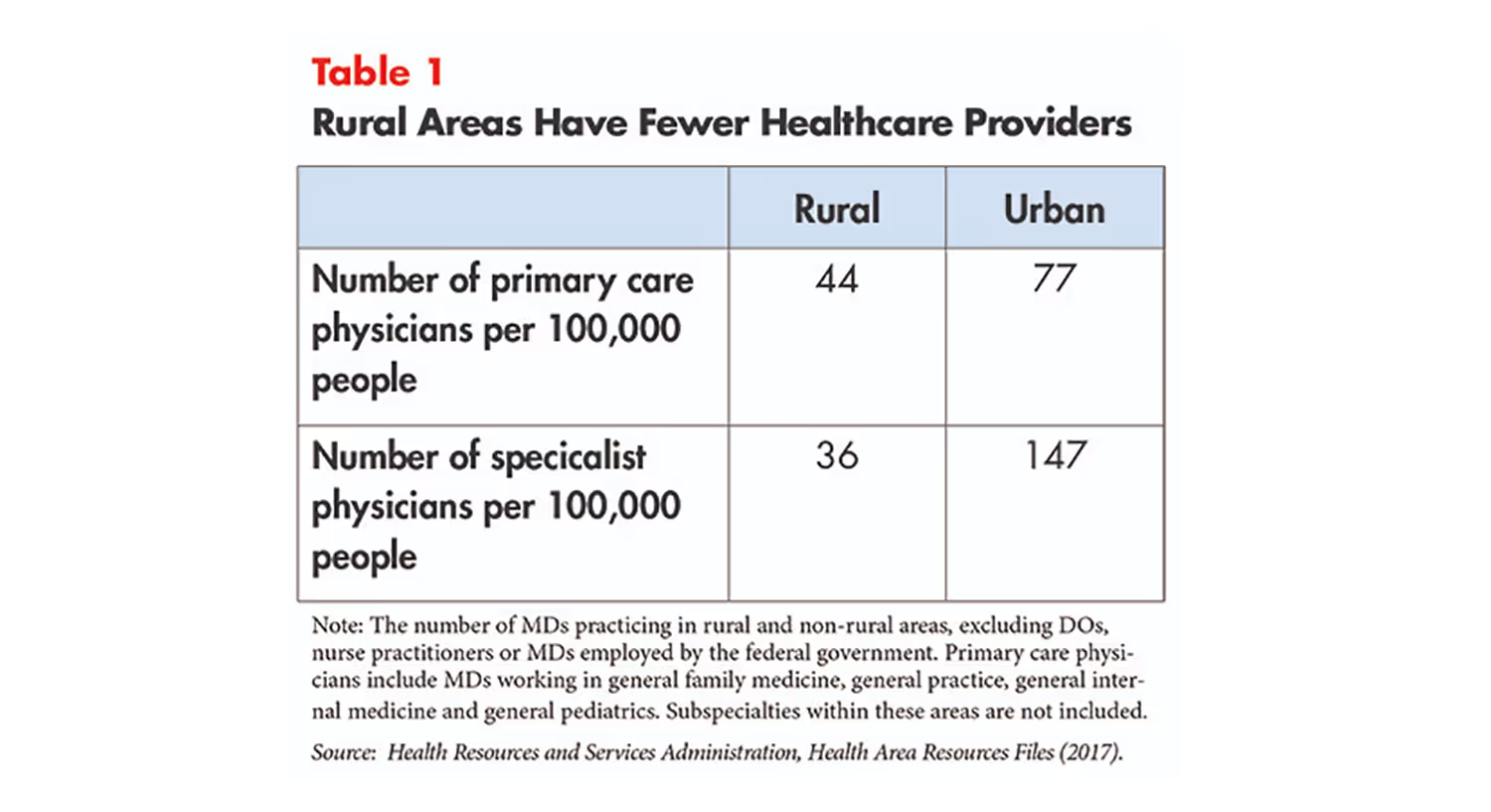
Other people don’t have rides to or from a visit. But new advancements are solving this as more facilities provide transportation services for those in need.
Before becoming a patient, confirm you have a way to get there and then decide if the commute is worth it for that specific practice.
Urgent Situations
- Does it matter which hospital you admit to? If so, which ones?
- Is someone on call after hours?
- How do I reach you in case of an emergency?
- If I need to see a specialist, will you help me find the best option?
- What if I need care on short notice?
Regular-scheduled visits aren’t the only time you’ll want to be seeing or contacting this doctor. Once you’re a patient and they know your health records, you want them involved if you have any health emergencies.
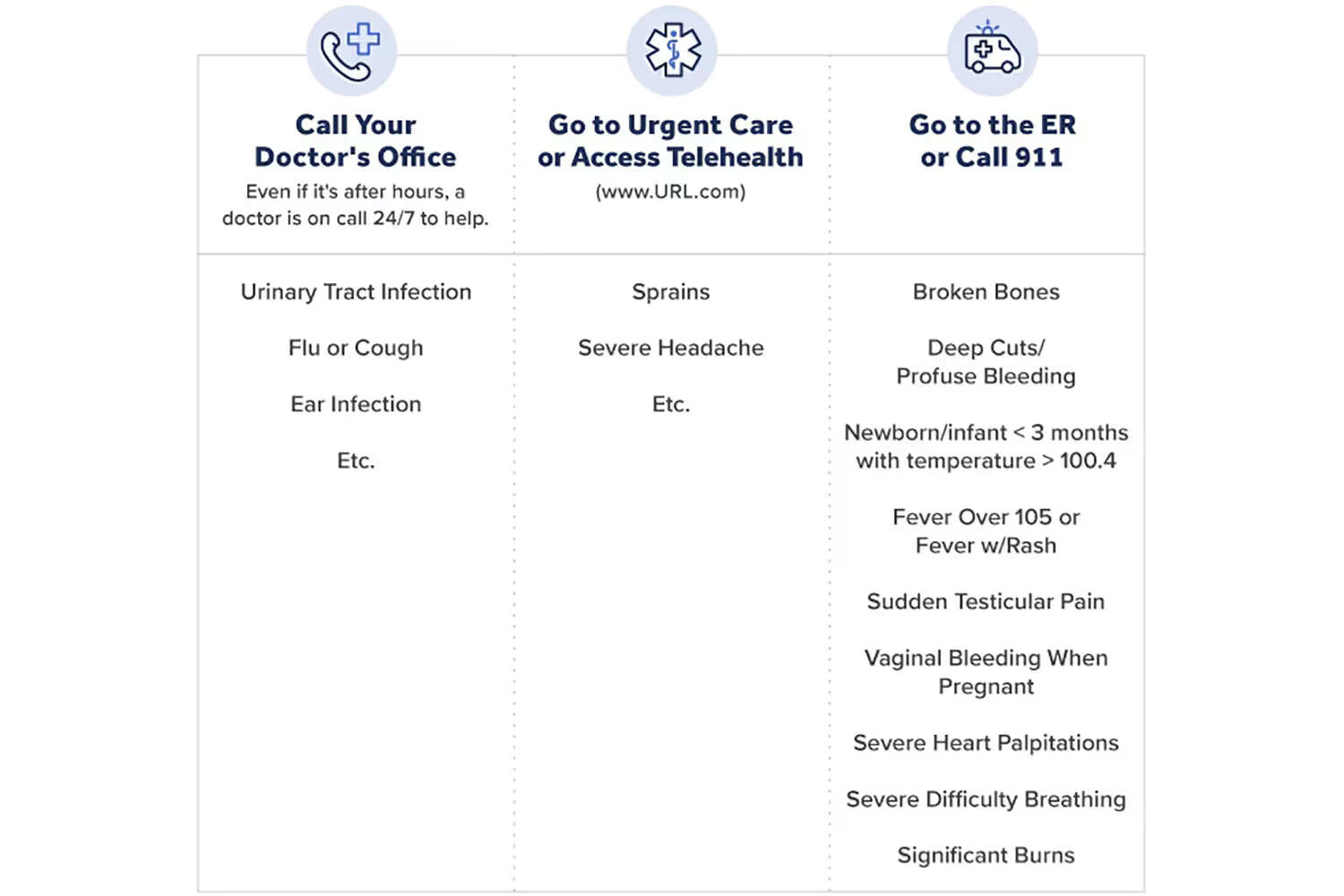
In a stressful situation like this, you’ll want to know ahead of time how the doctor will handle it. It’s always better to prepare for this beforehand so you know what to expect if the situation ever arises.
Contact and Communication
- Do you use email communication for anything?
- Do you accept non-emergency questions via email?
- How often can I expect a response?
- Is there always someone to answer the phone?
- How soon will your office return a missed call?
- Do you accept phone calls for answering health questions? Is there a fee?
Is there a communication method that you prefer to use and that works better with your schedule? People constantly running around all day have little time for phone calls, especially if they have to play phone tag.
Knowing when the office is available for calls helps save you time as a patient. And if they offer fast email communication, that’s even better.
If the office is difficult to get in touch with, there’s a chance you’ll end up switching practices. After all, 74% of customers are likely to switch businesses after a negative phone experience.
But if the office reaches you within an hour instead of one day of you contacting them, there’s a 60 times higher chance for a meaningful conversation. Because of this, it’s best to start with a provider who prioritizes communication.
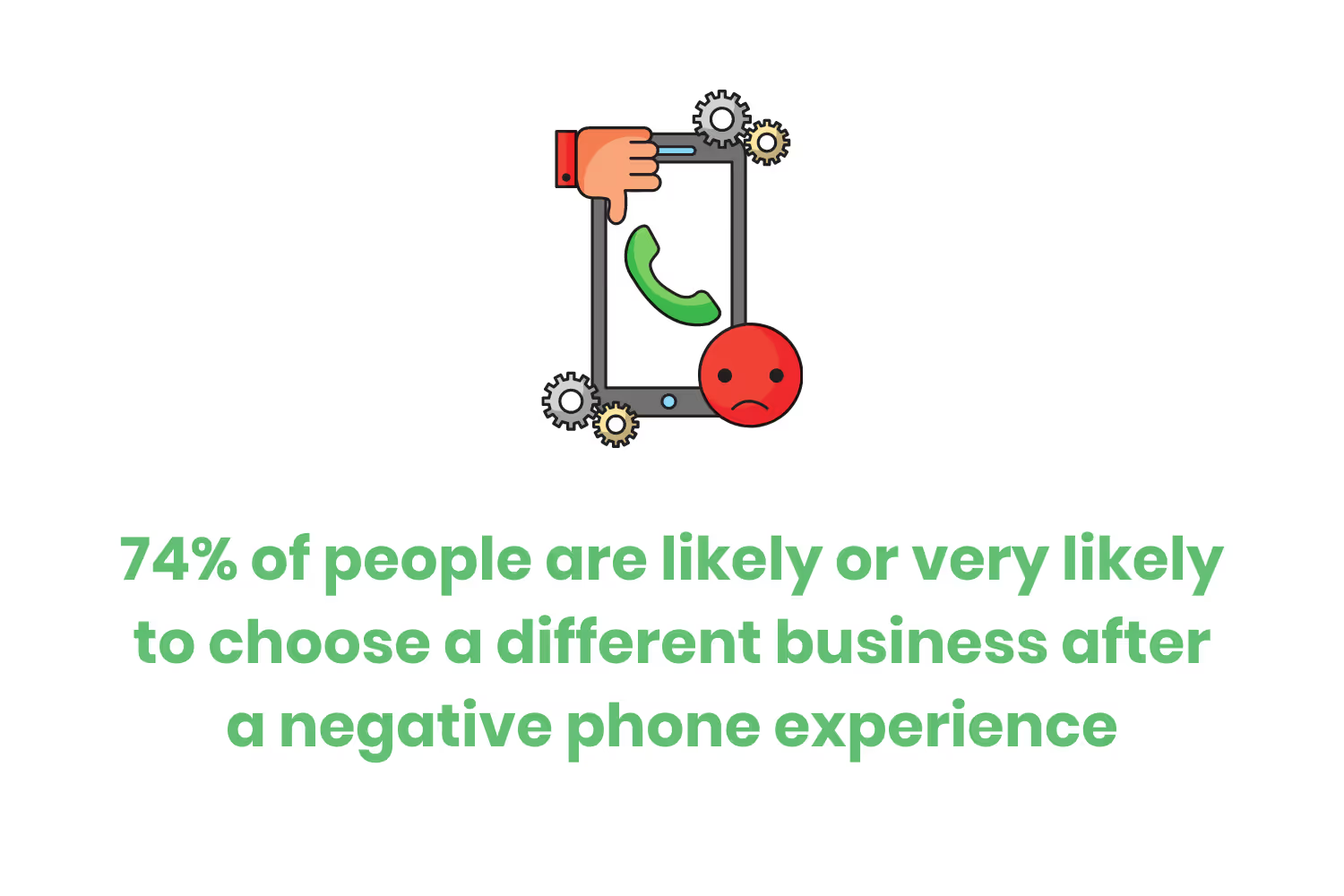
Appointments and Scheduling
- Is telehealth an option?
- Does your practice offer in-home health visits or services?
- How far in advance do I need to schedule a visit?
- How late can I cancel an appointment without getting charged?
- What is the no-show/late arrival policy?
- How much time will I spend with you at an appointment?
- What is the average wait-time?
Now it’s time for the actual appointment details. This involves scheduling, arriving, and then seeing the doctor. Ultimately, this is the part of your experience that will have the biggest impact on you and what you’ll remember most.
Finding what works best for you will give you the most pleasant experience. If you’re a busy person, a provider with telehealth options or short wait times is going to benefit you the most. An average wait time and commute of 100 minutes would be frustrating if you have somewhere else to get to.
If you tend to have many questions to ask your doctor each visit, you’ll want a provider who can spend a lot of time with you. You may want to look for one of the 33% of physicians who spend 17-24 minutes with their patients.
And if you’re often late or forgetful, a strict no-show and late arrival policy could be an issue for you down the road. Having an appointment reminder is something else you should look for from a doctor, which brings me to the next set of questions to consider.
Online Options and Payment
- Do you send appointment reminders?
- Do you offer online scheduling?
- Do you accept online payments?
- Is your practice on social media?
- Am I able to access my medical records online?
- Do you have online resources with additional information?
With technology expanding in healthcare, most people expect providers to have some form of online options. It provides convenience and appeals to younger people who are starting to make their own health decisions. Not all patient demographics feel comfortable with these online tools, so think about if these are something you’re willing to use.
But if there are methods that you find useful and time-saving, then also think about if it’ll be inconvenient not having these choices. After all, over one-fourth of people would switch providers for high-quality digital services.
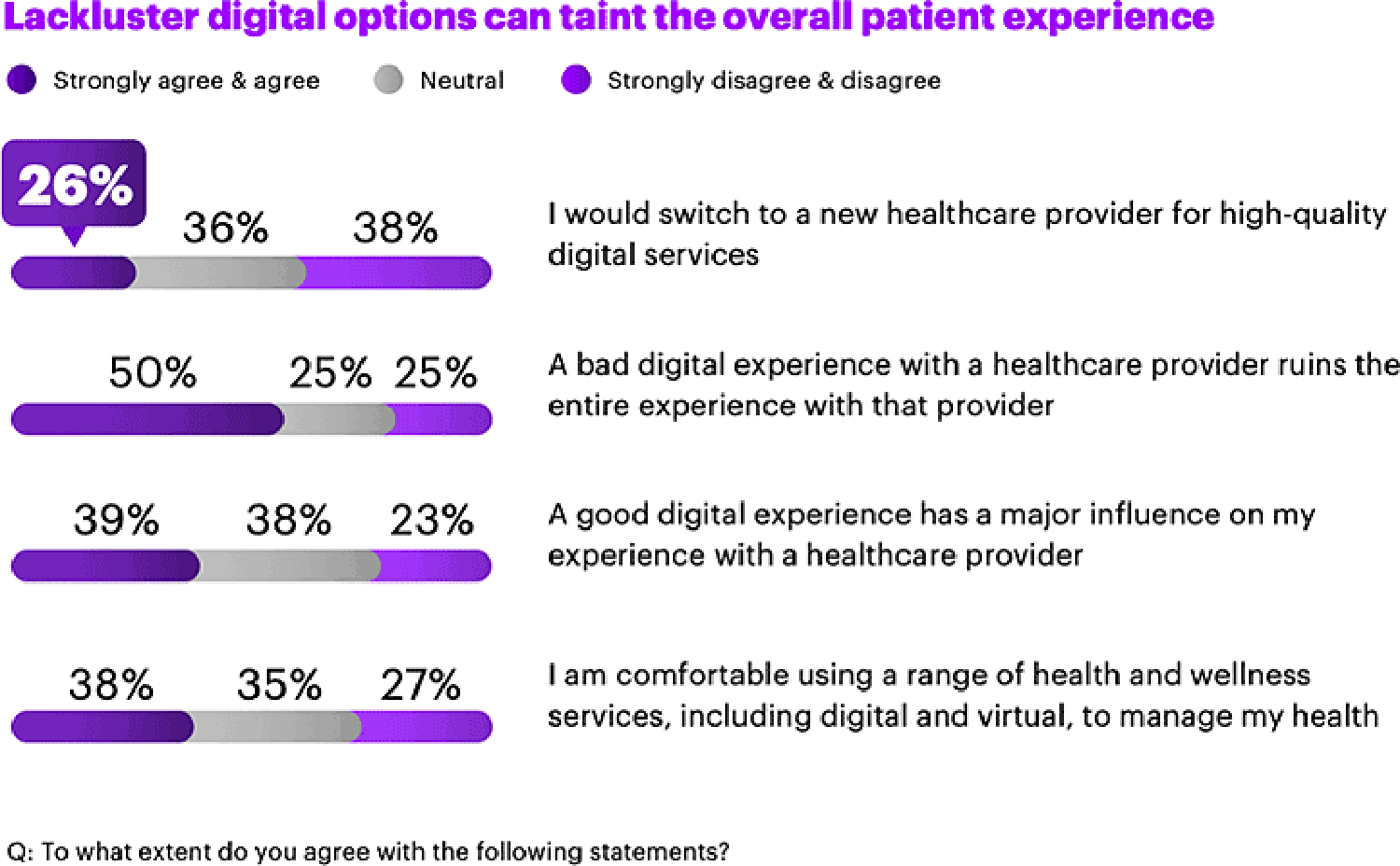
Post-Visit and Follow-Up
- Do you provide post-visit reports?
- Will you follow up with me about my treatment plan?
- In what cases do you require a follow-up visit?
- How often do I need an appointment for prescription refills?
Finally, there are still things to ask for after you’d see the doctor. The physician-patient communication doesn’t stop once you leave. Or at least, it shouldn’t. If this is the doctor you’ll continue to see, there should be open communication about your ongoing health.
Nonadherence to treatment occurs more often than it should, leading to around 125,000 US deaths per year. People forget up to 80% of the information doctors give them immediately after their appointments. This is a recipe for nonadherence to occur.
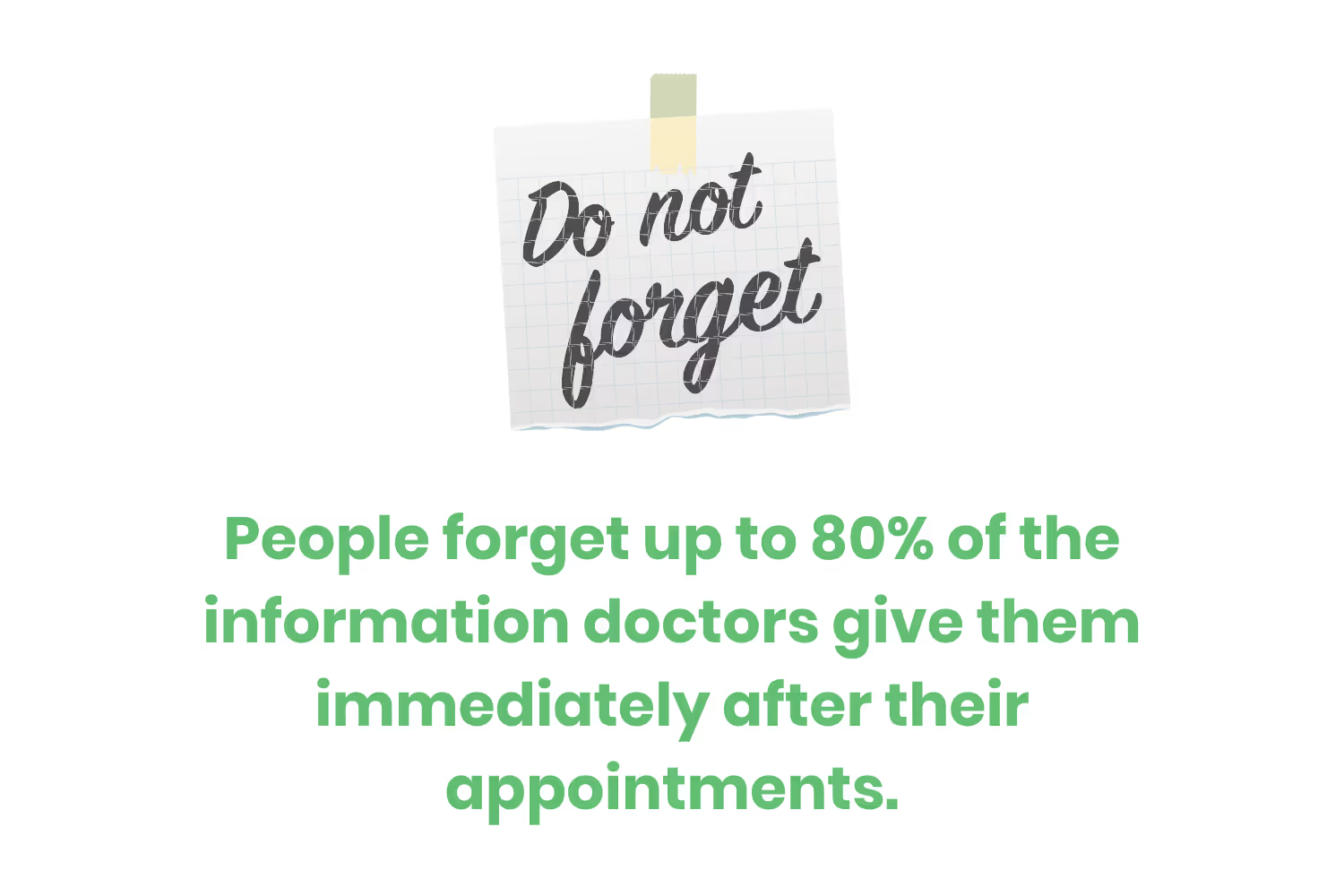
But the way that doctors follow up with patients after visits helps them avoid becoming part of these statistics. Follow-up visits and summaries of what you discussed at the appointment will help you remember your treatment plan. It also helps ensure that your treatment is working or if there’s anything the physician needs to adjust.
Follow-ups aren’t always necessary so asking when your doctor requires these will help you prepare for how often you’ll be visiting.
Conclusion
People are more likely to trust their health providers when they have enough choice between doctors. But when you have more choices, you need a way to narrow down your options.
The best way to do this is by coming up with questions to ask new doctors that you’re considering. Determining what’s most important to you in your health experience will guide you in your decision.
By asking your potential new doctor the questions valuable to you, you’re able to pick one that you’ll stick with long-term. That way you won’t get frustrated after just a few visits and decide to switch practices again.
Emphasize your product's unique features or benefits to differentiate it from competitors
In nec dictum adipiscing pharetra enim etiam scelerisque dolor purus ipsum egestas cursus vulputate arcu egestas ut eu sed mollis consectetur mattis pharetra curabitur et maecenas in mattis fames consectetur ipsum quis risus mauris aliquam ornare nisl purus at ipsum nulla accumsan consectetur vestibulum suspendisse aliquam condimentum scelerisque lacinia pellentesque vestibulum condimentum turpis ligula pharetra dictum sapien facilisis sapien at sagittis et cursus congue.
- Pharetra curabitur et maecenas in mattis fames consectetur ipsum quis risus.
- Justo urna nisi auctor consequat consectetur dolor lectus blandit.
- Eget egestas volutpat lacinia vestibulum vitae mattis hendrerit.
- Ornare elit odio tellus orci bibendum dictum id sem congue enim amet diam.
Incorporate statistics or specific numbers to highlight the effectiveness or popularity of your offering
Convallis pellentesque ullamcorper sapien sed tristique fermentum proin amet quam tincidunt feugiat vitae neque quisque odio ut pellentesque ac mauris eget lectus. Pretium arcu turpis lacus sapien sit at eu sapien duis magna nunc nibh nam non ut nibh ultrices ultrices elementum egestas enim nisl sed cursus pellentesque sit dignissim enim euismod sit et convallis sed pelis viverra quam at nisl sit pharetra enim nisl nec vestibulum posuere in volutpat sed blandit neque risus.

Use time-sensitive language to encourage immediate action, such as "Limited Time Offer
Feugiat vitae neque quisque odio ut pellentesque ac mauris eget lectus. Pretium arcu turpis lacus sapien sit at eu sapien duis magna nunc nibh nam non ut nibh ultrices ultrices elementum egestas enim nisl sed cursus pellentesque sit dignissim enim euismod sit et convallis sed pelis viverra quam at nisl sit pharetra enim nisl nec vestibulum posuere in volutpat sed blandit neque risus.
- Pharetra curabitur et maecenas in mattis fames consectetur ipsum quis risus.
- Justo urna nisi auctor consequat consectetur dolor lectus blandit.
- Eget egestas volutpat lacinia vestibulum vitae mattis hendrerit.
- Ornare elit odio tellus orci bibendum dictum id sem congue enim amet diam.
Address customer pain points directly by showing how your product solves their problems
Feugiat vitae neque quisque odio ut pellentesque ac mauris eget lectus. Pretium arcu turpis lacus sapien sit at eu sapien duis magna nunc nibh nam non ut nibh ultrices ultrices elementum egestas enim nisl sed cursus pellentesque sit dignissim enim euismod sit et convallis sed pelis viverra quam at nisl sit pharetra enim nisl nec vestibulum posuere in volutpat sed blandit neque risus.
Vel etiam vel amet aenean eget in habitasse nunc duis tellus sem turpis risus aliquam ac volutpat tellus eu faucibus ullamcorper.
Tailor titles to your ideal customer segment using phrases like "Designed for Busy Professionals
Sed pretium id nibh id sit felis vitae volutpat volutpat adipiscing at sodales neque lectus mi phasellus commodo at elit suspendisse ornare faucibus lectus purus viverra in nec aliquet commodo et sed sed nisi tempor mi pellentesque arcu viverra pretium duis enim vulputate dignissim etiam ultrices vitae neque urna proin nibh diam turpis augue lacus.


.avif)

